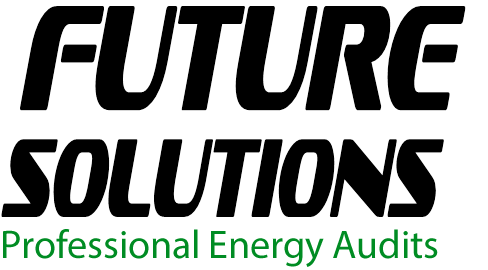
Reduce Energy Costs!
Begin with an AUDIT. Let us show you a brighter future.
Conservation begins with a good plan. Plan to be more competitive with an energy audit from Future Solutions.
Let our auditors help you identify how to save on energy. We’ll review your plant, identify possible cost saving measures, and make a professional presentation to you.
Let us identify your competitive advantages. Turn potential into long-term savings.
Make use of the programs in place to get your audit done today.
Let us check out
- Lighting
- Timers and automated controls
- Electric motors and machine drives
- HVAC systems
- Review time of use patterns
- Other energy saving opportunities
Electricity accounts for a large percentage of most operating costs. An honest review can be a huge money saver.
We can make a difference to
- Manufacturing facilities
- Malls and retail outlets
- Offices
- Motels and hotels
- Schools and community centres
- Restaurants
- Multi family residential buildings
- Other large energy consuming facilities
A good plan begins with a comprehensive audit. Plan to make a significant difference to bottom line savings.
Take advantage of government programs presently available to you. Ask us for details.
Contact Future Solutions for a personal consultation. Don’t let this opportunity pass. Assess, evaluate, plan and take action now. We look forward to working with you toward a brighter future.
An energy audit is an inspection, survey and analysis of energy flows for energy conservation in a building, process or system to reduce the amount of energy input into the system without negatively affecting the output(s).
An energy audit of a home may involve recording various characteristics of the building envelope including the walls, ceilings, floors, doors, windows, and skylights. For each of these components the area and resistance to heat flow (R-value) is measured or estimated. The leakage rate or infiltration of air through the building envelope is of concern, both of which are strongly affected by window construction and quality of door seals such as weatherstripping. The goal of this exercise is to quantify the building's overall thermal performance. The audit may also assess the efficiency, physical condition, and programming of mechanical systems such as the heating, ventilation, air conditioning equipment, and thermostat.
A home energy audit may include a written report estimating energy use given local climate criteria, thermostat settings, roof overhang, and solar orientation. This could show energy use for a given time period, say a year, and the impact of any suggested improvements per year. The accuracy of energy estimates are greatly improved when the homeowner's billing history is available showing the quantities of electricity, natural gas, fuel oil, or other energy sources consumed over a one or two-year period.
Some of the greatest effects on energy use are user behavior, climate, and age of the home. An energy audit may therefore include an interview of the homeowners to understand their patterns of use over time. The energy billing history from the local utility company can be calibrated using heating degree day and cooling degree day data obtained from recent, local weather data in combination with the thermal energy model of the building. Advances in computer-based thermal modeling can take into account many variables affecting energy use.
Improve your competitive advantage through effective energy management.
Hydro One offers financial incentives to help businesses reduce electricity costs, improve processes and make operations as energy efficient as possible.
Funding is available for energy audits, retrofits, process and systems upgrades, chilled water system upgrades, high performance new construction and demand response participation. Review the programs below and then call us. We’re here to help.
